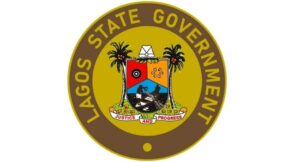Why Ogun state is investing heavily in infrastructure — Governor Abiodun
The Ogun State Governor, Prince Dapo Abiodun, has said that his administration is investing massively in infrastructure in the Gateway State in order to provide better living standards for the citizenry and create an enabling environment for investment and future development of the state.
The resolve of Governor Abiodun on infrastructural development, according to the Special Adviser on Media and Strategy, Mr Kayode Akinmade, in a chat with journalists on Monday in Abeokuta, was not only on roads but also includes provision of housing, security infrastructure, water, among others, knowing full well that the provision of infrastructure is critical for socio-economic development in any nation.
It is not for nothing that the state has become Nigeria’s top investment destination, with industrialists like the Chairman of the Dangote Group, Alhaji Aliko Dangote, investing heavily in the state. The Governor’s experience as a boardroom player has in no small way helped to reposition Ogun State’s investment trajectory, Akinmade said.
Like many states in the country, Ogun State has had its fair share of inadequate infrastructure such that sectors like transportation, healthcare, agriculture, power and social services, are in dire need of maintenance and upgrade.
He, however, said that since Governor Abiodun assumed office in May 2019, the fortune of the state has changed for the better.
“Noticeably, Abiodun’s view of infrastructure is holistic and includes boosting agriculture and micro, small, and medium enterprises (MSMEs) as the engine of growth and economic development.
“As a means of exploring the state’s proximity to Lagos,which is the country’s commercial hub, the visionary governor is also partnering with the Lagos State Government on key joint ventures.
“This partnership, which covers infrastructure, security, and tax issues, among others, will further help to fast-track development and create a spillover of commercial opportunities.
“For instance, the Lagos-Ogun Joint Development Commission (LOJDC) is a common alliance between the two states to jointly tackle issues bordering on security, sanitation, traffic and transportation, waste management, water supply, land use planning, infrastructure development and maintenance, urban renewal and slum upgrading for the mutual benefit of our people and the generality of Nigerians.
“Among others, this is to facilitate rapid development of border communities in Ota, Akute Alagbole, Lambe, Ojodu, Agbado, Mowe, Warewa, Isheri and all the eight local government areas that share boundaries with Lagos State.
“The provision of an investment-friendly environment is already having multiplier effects on the economy of the state, as companies are taking advantage of Ogun’s location as gateway to the hinterlands of Nigeria.
“For travellers on Abeokuta-Sagamu Expressway, a major aspect of Abiodun’s achievement is the rapid springing up of industries that have been providing employment for the teeming populace, including artisans. The State Government’s investment on Atan- Agbara-Lusada Road was deliberately meant to address the dire needs of industries in the area as the industrial hub of the state.
“Expectedly, the rising investments in infrastructure are already having multiplier effects on the Internally Generated Revenue (IGR), with the state ranked first among states in A1 Index,” the Special Adviser added.




